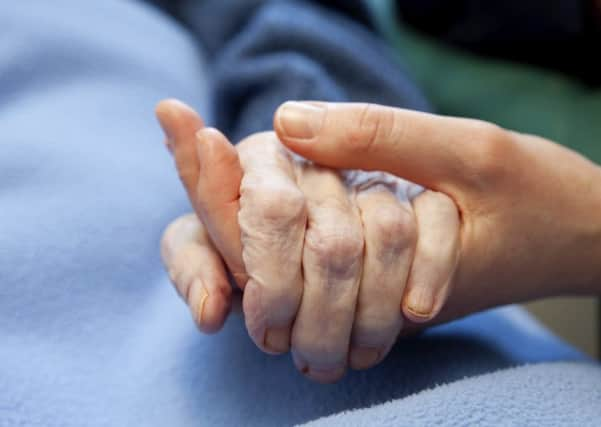John Cameron: Is the right to die such a bad thing?


Too often in my long career as a clergyman I have sat by the beds of parishioners in busy, anonymous wards as they lived out their last hours in pain and distress.
In scenes too harrowing to describe, I longed for a kindly medic to put an end to the nightmare.
Advertisement
Hide AdAdvertisement
Hide AdThe Commission on Assisted Dying’s last report states what clerics like me know only too well: “The current legal status of assisted suicide is inadequate and incoherent.”
Ideologues raise every sort of objection; recite mantras about slippery slopes and cherry-pick obscure passages from the Bible. But the time has come for the government to look again at the law because modern medicine is preventing nature taking its merciful course.
We are given discretion at many of the key moments in life: choice of partner, choice when and whether to have children or to terminate an unwanted pregnancy. In addition we have the right to accept or refuse medical treatment. I cannot see why it is considered such a reach to allow us the same right to decide when and where we die. The present law is based on primitive beliefs no longer held by many and these should certainly not be imposed by believers on those who do not share them.
Then there is the question of pain and suffering in the death process. Even with the best palliative care – and that is by no means universally available – it is not possible to adequately alleviate the suffering of between 5 and 10 per cent of those dying. Pain is often the major problem (in such conditions as bone cancer), but nausea, vomiting, breathlessness, coughing, incontinence and other truly distressing symptoms can be difficult to treat.
Severe weakness and total dependency are inevitable and many find this the most distressing to bear. The final stages used to be treated by increasing the dosage of pain-killers such as morphine and heroin or other sedatives to induce sleep, which slide into coma and death. This was known as ‘terminal sedation’ and in most cases the patient took no part in the decision.
Post-Shipman, such flexibility in a doctor’s duty of care is increasingly being thwarted. Yet the vast majority of older doctors admit in non-identifying surveys that they have given the ultimate relief to a patent dying in extremis, painkillers in such high doses that the patient passed away more quickly. But sanctions are now placed on doctors tempted to give such merciful release, so they risk going to jail or, at the very least, being struck off.
Finally, in the ‘populist’ era where ordinary people are increasingly demanding that their views be treated seriously, the results of opinion polls should not be dismissed out of hand. And these show that more than 80 per cent believe a person suffering unbearably from a terminal illness should be allowed by law to have medical help to die if that is what he or she wants.
John Cameron of St Andrews is a retired minister with doctorates in both science and theology. He has also worked for GlaxoSmithKline and was a university lecturer.